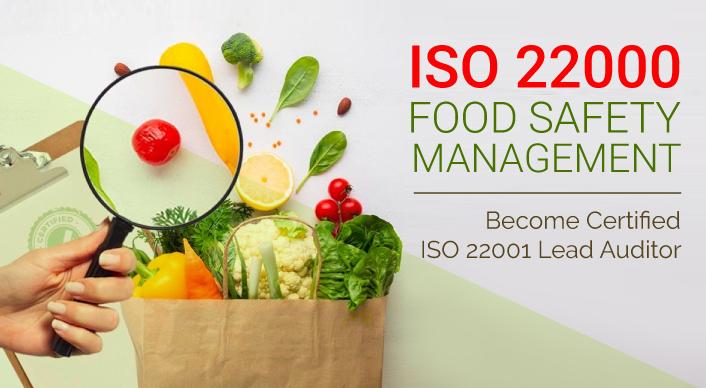ISO Certification for Food Safety Management

ISO certification for food safety management refers to compliance with the ISO 22000 standard, which provides requirements for establishing, implementing, maintaining, and continually improving a food safety management system (FSMS). ISO 22000 certification demonstrates an organization's commitment to ensuring the safety and quality of food products throughout the food supply chain.
Here are key aspects of ISO certification for food safety management:
ISO 22000 Standard: ISO 22000 is an international standard developed by the International Organization for Standardization (ISO) that provides a comprehensive framework for food safety management. The standard is applicable to organizations involved in the food industry, including food manufacturers, processors, distributors, retailers, and service providers.
Food Safety Management System (FSMS): ISO 22000 requires organizations to establish an FSMS, which is a set of policies, procedures, processes, and controls designed to ensure the safety and quality of food products throughout the food supply chain. The FSMS helps organizations identify, assess, and control food safety hazards, prevent foodborne illnesses, and comply with regulatory requirements.
Hazard Analysis and Critical Control Points (HACCP): ISO 22000 incorporates the principles of Hazard Analysis and Critical Control Points (HACCP), which are widely recognized as a systematic approach to identifying, assessing, and controlling food safety hazards. Organizations are required to implement HACCP principles as part of their FSMS to manage and mitigate food safety risks effectively.
Prerequisite Programs (PRPs): ISO 22000 emphasizes the importance of implementing prerequisite programs (PRPs) to maintain a hygienic environment and control basic food safety hazards. PRPs include practices such as sanitation, pest control, personnel hygiene, facility maintenance, and supplier control, which are essential for ensuring food safety throughout the food production process.
Communication and Traceability: ISO 22000 requires organizations to establish effective communication processes and traceability systems to ensure the identification and recall of unsafe food products. Organizations must be able to track and trace food products at all stages of the supply chain, from raw materials sourcing to final consumption.
Legal and Regulatory Compliance: ISO 22000 requires organizations to identify and comply with applicable legal, regulatory, and contractual requirements related to food safety. Compliance with ISO 22000 helps organizations ensure that they meet legal obligations, reduce food safety risks, and enhance overall food safety performance.
Continuous Improvement: ISO 22000 emphasizes the importance of continuous improvement in food safety management. Organizations are required to monitor, measure, and evaluate their FSMS, conduct internal audits, and take corrective and preventive actions to address non-conformities and improve food safety performance over time.
Certification Process: Organizations seeking ISO 22000 certification undergo a certification process conducted by accredited third-party certification bodies. The certification process typically involves a comprehensive assessment of the organization's FSMS, including documentation review, site visits, interviews, and performance evaluation against ISO 22000 requirements.
ISO 22000 certification is recognized globally and demonstrates an organization's commitment to ensuring the safety and quality of food products. It can enhance the organization's reputation, credibility, and competitiveness in the food industry, while also providing assurance to consumers, regulators, and stakeholders that the organization is committed to food safety excellence.
Thank you,